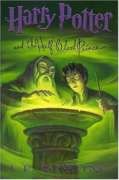
Sixth-year Hogwarts student Harry Potter gains valuable insights into the boy Voldemort once was, even as his own world is transformed by maturing friendships, schoolwork assistance from an unexpected source, and devastating losses.

Sixth-year Hogwarts student Harry Potter gains valuable insights into the boy Voldemort once was, even as his own world is transformed by maturing friendships, schoolwork assistance from an unexpected source, and devastating losses.
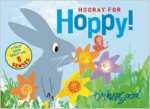
When Hoppy the rabbit wakes up on the first day of spring, he discovers a world full of wonderful things. He uses all five senses to sniff the fresh air, listen to the birds sing, taste the fresh grass, watch the lambs in the meadow, and touch the warm ground. Illustrated in bright, bold collage, this story about seasonal change and sensory perception makes a warm and cozy readaloud.
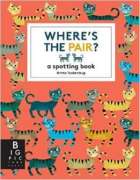
Can you spot the Siamese cats? Where are the fish with matching fins? This fabulous follow-up to stand-out title The Odd One Out features rhyming riddles accompanied by patterned artwork, within which the answer lies.
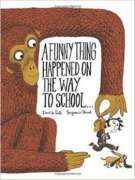
Then there are the evil ninjas, massive ape, mysterious mole people, giant blob, and countless other daunting (and astonishing) detours along the way to school. Are these excuses really why this student is late? Or is there another explanation that is even more outrageous than the rest? From Davide Cali and Benjamin Chaud, the critically acclaimed author/illustrator team behind I Didn’t Do My Homework Because comes a fast-paced, action-packed, laugh-out-loud story about finding the way to school despite the odds—and the unbelievable oddness!

Mr. Panda has a plate of doughnuts to share, but most of the other animals forget to say “Please.”
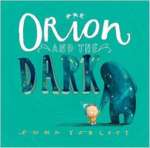
Orion is scared of a lot of things, but most of all he’s scared of the dark. So one night the Dark decides to take Orion on an adventure.
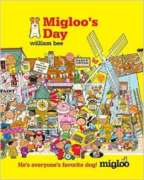
This is the story of Migloo’s day, a day filled with food, fun, friends and adventure. There are things to find and puzzles to solve on action-filled spreads brimming with details. From acclaimed author-illustrator William Bee comes a search-and-find book with a fun-loving dog leading the way.
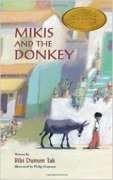
One day, Mikis’s grandfather has a surprise for him: a new donkey waiting! Mikis falls in love with the creature, but his grandparents tell him that the donkey is a working animal, not a pet. However, they still let Mikis choose her name — Tsaki — and allow the two of them to spend their Sundays together. Mikis and Tsaki soon become fast friends, and together the two have some grand adventures. Eventually, both Mikis and his grandfather learn a bit more about what exactly it means to care for another creature.
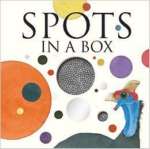
A young guinea fowl concerned by his lack of spots sends off for some in the mail. When the box arrives, the spots aren’t quite what he was expecting. After trying on big spots, small spots, striped spots, and even glow-in-the-dark spots, he finds a pattern that suits him perfectly in this touching, quirky celebration of individuality.
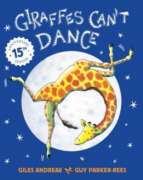
Giraffes Can’t Dance is a touching tale of Gerald the giraffe, who wants nothing more than to dance. With crooked knees and thin legs, it’s harder for a giraffe than you would think. Gerald is finally able to dance to his own tune when he gets some encouraging words from an unlikely friend.